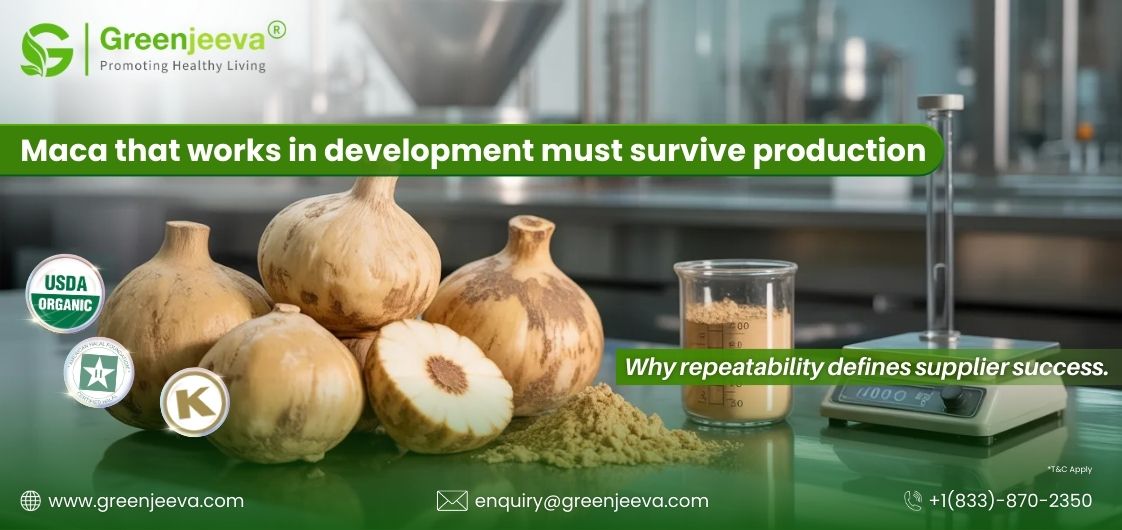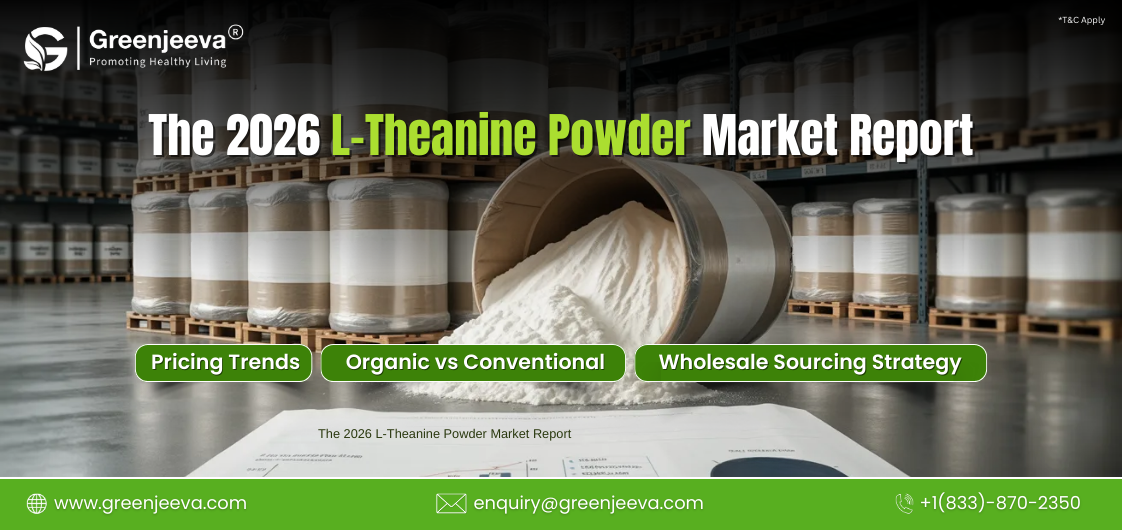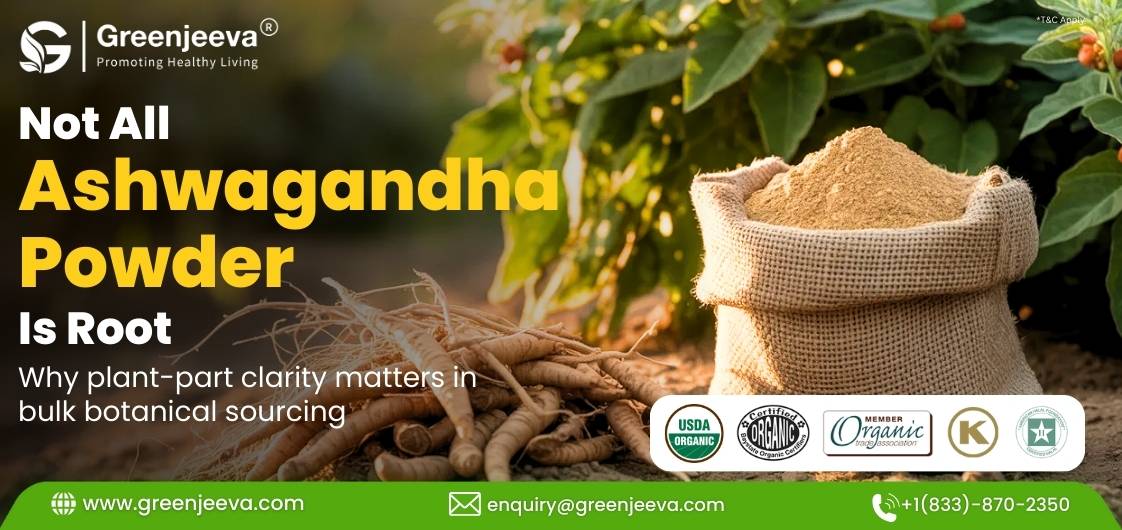What Are the Key Risks to Watch When Importing Bulk Bee Pollen Powder
.jpg)
Most people picture bee pollen as something found on smoothie bar menus or weekend wellness shelves—not something that starts long conversations in procurement teams or QA labs. The irony is that the tiny golden granules people sprinkle on breakfast bowls carry far more complexity once they enter an industrial supply chain. Behind every jar on a consumer shelf is a network of apiaries, processors, exporters, and regulatory checks that manufacturers cannot ignore.
That’s where the real story begins for sourcing managers, product formulators, and operations teams. When Bee Pollen Powder shifts from a lifestyle ingredient to a large-volume raw material, the risks look different. The questions become less about personal use and more about traceability, particle-size consistency, allergen controls, moisture stability, compliant documentation, cross-border regulations, and the reliability of a bee pollen powder bulk supplier.
This guide highlights the major risks sourcing managers, R&D teams, and bulk ingredient buyers should assess when evaluating a bee pollen powder bulk supplier in the U.S. or overseas.
Why Does Botanical Origin Affect Bee Pollen Powder Safety and Consistency
Botanical origin affects color, composition, and compliance, making it one of the most important factors to verify when sourcing bulk Bee Pollen Powder.
Botanical origin drives a large portion of the variability in Bee Pollen Powder. Pollen harvested from multifloral regions behaves differently from single-origin pollen. Color, aroma, flavor strength, natural nutrient profile, and flowability shift depending on which flowers bees collected from.
For manufacturers, this means two batches of Bee Pollen Powder both clean and compliant can still behave differently in blends or formulations. This is especially relevant for companies producing capsules, powder mixes, bars, beverages, and cosmetic formulations where color and particulate size influence the finished product’s appearance and stability.
When evaluating bee pollen powder bulk suppliers in the USA or abroad, request clear documentation of botanical origin, seasonality, and climate conditions during harvest. Lack of traceability is a red flag.
What Processing Risks Can Occur During Drying and Milling
Drying and milling affect safety, shelf life, flow properties, and dispersibility of bulk Bee Pollen Powder.
Bee Pollen Powder must be properly dried to keep moisture levels within accepted limits. Material dried at high temperatures may darken or lose functional quality. Material dried inadequately may retain excess moisture, creating a risk of microbial growth or caking during transport.
Different processing methods hot air drying, low-temperature drying, vacuum processing, or freeze-drying produce different outcomes. Freeze-dried or controlled low-temperature material typically offers better color and structural integrity.
Buyers must also assess milling practices. Coarse pollen behaves very differently from micronized formats. In beverage mixes, coarse pollen tends to settle. In cosmetic formulations, larger granules may create unsuitable textures for facial applications.
If suppliers do not specify drying temperature ranges, final moisture targets, and particle-size distribution, the risk of receiving inconsistent material increases.
How Do Allergen and Cross-Contact Risks Affect Bee Pollen Powder Procurement
Bee Pollen Powder is naturally allergenic, so cross-contact control is critical before approving any supplier.
Bee Pollen Powder cannot be classified as allergen free in the literal sense because pollen itself may cause reactions in sensitive individuals. However, Allergen Free Bulk Bee Pollen Powder is often used in industry to describe pollen processed in facilities with documented cross-contact controls for regulated allergens.
This is where procurement teams need clarity. Suppliers should provide:
- Allergen statements
- Facility cross-contact documentation
- Sanitation SOPs
- Batch-wise cleaning records
Additionally, since pollen originates in open environments, there may be trace plant material from surrounding sources. Strong identity testing and microscopy verification help ensure no unintended botanical contaminants enter the supply chain.
What Documentation Gaps Create the Highest Compliance Risks
Missing COA details, incomplete traceability, and lack of contaminant testing create the most common compliance challenges.
Food grade Bee Pollen Powder requires complete documentation before approval. Missing or vague documentation is one of the top reasons batches are rejected after purchase. Minimum requirements for any bulk Bee Pollen Powder shipment include:
- Lot-specific Certificate of Analysis
- Moisture, ash, and identification testing
- Microbial panel (TPC, yeast/mold, Salmonella, E. coli)
- Heavy metals profile
- Pesticide residue screening
- Country-of-origin statement
- Allergen and cross-contact declaration
- MSDS/SDS
- Storage and handling recommendations
For imported material, traceability becomes even more important. Procurement teams should request harvest dates, apiary zone details, transport conditions, and packaging specifications. Lack of transparency in these areas often signals weak supply chain controls.
Why Do Variability and Adulteration Risks Increase When Sourcing Overseas
Bee Pollen Powder from overseas regions may involve higher risks related to adulteration, mislabeling, and inconsistent processing controls.
Bee Pollen Powder is sometimes mixed with low-cost fillers, oversieved plant materials, or other pollens not listed on documentation. Adulteration generally occurs when suppliers aggregate pollen from multiple small farms without formal QA controls.
Manufacturers importing bulk Bee Pollen Powder need to verify:
- Supplier’s internal QC program
- Third-party lab testing
- Whether the supplier aggregates pollen from multiple regions
- Whether the supplier handles blending in-house or outsources
To reduce risk, buyers often request pre-shipment samples tested by independent labs before finalizing procurement. Although this adds a step, it prevents receiving batches that cannot pass U.S. compliance standards.
How Do Storage and Transportation Conditions Impact Quality
Heat, humidity, and oxygen exposure can degrade Bee Pollen Powder supply in bulk during transit, especially in long-haul imports.
Bee Pollen Powder is sensitive to moisture and prolonged heat. During international transport, especially in warm climates or long shipping durations, material can absorb humidity and clump or develop microbial issues.
Recommended safeguards include:
- Moisture-protective, sealed packaging
- Oxygen protection where applicable
- Temperature-aware transport, especially in warmer months
- Palletization to prevent compression and breakage
- Clear storage instructions for receiving warehouses
If the product arrives clumped, darkened, or with off-odors, it may indicate exposure to humidity or temperature spikes during transit.
What Pricing-Related Risks Do Buyers Face When Sourcing bulk Bee Pollen Powder
Pricing fluctuations, inconsistent volumes, and unstable supply can complicate long-term planning for manufacturers.
Because Bee Pollen Powder depends on seasonal harvests and environmental conditions, global supply can shift year to year. This influences wholesale pricing and availability. Buyers may also encounter:
- Unexpected price surges afterinitialquotes
- Limited stock during off-season
- Variable MOQs across regions
- Freight cost inflation that affects landed cost
Partnering with a bulk ingredients supplier in U.S. markets that follows stable sourcing cycles and predictable inventory practices helps reduce these risks.
Conclusion
Every procurement team evaluating Bee Pollen Powder must look beyond the surface-level specifications. Factors like botanical origin, drying method, allergen controls, documentation completeness, and transport stability decide whether the material will perform consistently in production. These risks are manageable but only if identified early in the sourcing process and validated through strict QA and testing.
If your team is evaluating Bulk Bee Pollen Powder Supply for supplements, functional foods, beverages, cosmetic formulations, or pet nutrition. Green Jeeva can support sourcing efforts with compliant documentation, batch-wise traceability, and quality-focused bulk supply. Reach out for specifications sheet, free samples, and technical details aligned with your formulation and QA requirements. Register for free now!
**The Food and Drug Administration has not evaluated these statements. This product is not intended to diagnose, treat, cure, or prevent any disease.**


.jpg)



